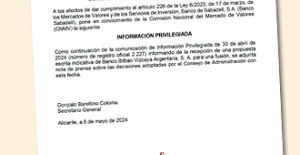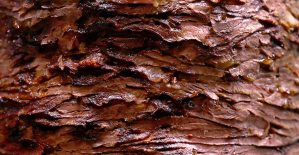A new study will be carried out in the Antilles to measure “the evolution of the impregnation” of the population with chlordecone and other pesticides such as glyphosate, and with heavy metals such as lead, announced Public Health France (SPF ) in a press release. “This new study is important to improve knowledge in order to continue and strengthen measures to prevent exposure to chlordecone and other pollutants in the Antilles, with appropriate support measures,” explained the health agency.
The study will involve more than 3,000 randomly selected people, including 700 children aged 6 or over, from January to July in mainland Guadeloupe and Martinique. Participation will be voluntary, but it must be as broad as possible “for the success of this study”, insisted the general director of SPF, Dr Caroline Semaille, emphasizing her interest in the West Indian population.
The objective is in particular to “measure the evolution of the levels of impregnation of the population with chlordecone, ten years after the first study”. This showed that more than 9 out of 10 West Indians had detectable chlordecone in their blood and that 14% of adults in Guadeloupe and 25% in Martinique exceeded the threshold beyond which health effects are possible. Long sprayed in banana plantations to fight against the weevil, the pesticide increases the risk of premature birth, but also of developing prostate cancer.
SPF will also “evaluate the impregnation with a selection of other molecules (pesticides and heavy metals), including some for the first time such as glyphosate, metabolites of pyrethroids (insecticides) and several heavy metals (lead, arsenic, mercury) ". The study also aims to identify the factors associated with the high level of impregnation in the population or to study that of the most sensitive (children and women of childbearing age) and more exposed (agricultural workers, fishermen, residents in contaminated areas). .
Chlordecone, a pesticide used in banana plantations to combat weevils, was banned in the United States in 1975, but authorized in France from 1972 to 1990, and even until 1993 in the Antilles, where it benefited from an exemption. . The slow degradation of the molecule, and its infiltration into the water of groundwater and rivers from contaminated plots, means that it ends up in the food chain and continues to contaminate residents thirty years after the end of its use.
If they recognized a “health scandal”, investigating judges from the health center of the Paris judicial court pronounced a dismissal in early 2023 in the investigation into the poisoning of the West Indies with chlordecone, putting an end to a judicial investigation opened in 2008. Outraged, the civil parties appealed. The State, for its part, recognized its responsibility in 2019 through the Minister of Overseas Territories until 2020, Annick Girardin.

 Body warns BBVA that "the Government has the last word" in the takeover bid for Sabadell
Body warns BBVA that "the Government has the last word" in the takeover bid for Sabadell Finding yourself face to face with a man or a bear? The debate that shakes up social networks
Finding yourself face to face with a man or a bear? The debate that shakes up social networks Sabadell rejects the merger with BBVA and will fight to remain alone
Sabadell rejects the merger with BBVA and will fight to remain alone In Germany, the far left wants to cap the price of “doner kebabs”
In Germany, the far left wants to cap the price of “doner kebabs” The presence of blood in the urine, a warning sign of bladder cancer
The presence of blood in the urine, a warning sign of bladder cancer A baby whose mother smoked during pregnancy will age more quickly
A baby whose mother smoked during pregnancy will age more quickly The euro zone economy grows in April at its best pace in almost a year but inflationary pressure increases
The euro zone economy grows in April at its best pace in almost a year but inflationary pressure increases Children born thanks to PMA do not have more cancers than others
Children born thanks to PMA do not have more cancers than others Argentina: the street once again raises its voice against President Javier Milei
Argentina: the street once again raises its voice against President Javier Milei Spain: BBVA bank announces a hostile takeover bid for its competitor Sabadell
Spain: BBVA bank announces a hostile takeover bid for its competitor Sabadell New black series for Boeing: eleven injured after a plane went off the runway in Dakar
New black series for Boeing: eleven injured after a plane went off the runway in Dakar “The prices are astronomical”: to enjoy the Olympics with family, Sabrina spent... 8,000 euros
“The prices are astronomical”: to enjoy the Olympics with family, Sabrina spent... 8,000 euros Berry affair: Jeane Manson victim of a heart problem after a court hearing
Berry affair: Jeane Manson victim of a heart problem after a court hearing Venice Film Festival: Isabelle Huppert will chair the jury of the 81st festival
Venice Film Festival: Isabelle Huppert will chair the jury of the 81st festival Louvre: Delacroix’s “Liberty Leading the People” target of the Riposte Alimentaire collective
Louvre: Delacroix’s “Liberty Leading the People” target of the Riposte Alimentaire collective The Coubertin Spirit, Eternal Memory, Planet of the Apes... Films to watch this week
The Coubertin Spirit, Eternal Memory, Planet of the Apes... Films to watch this week Omoda 7, another Chinese car that could be manufactured in Spain
Omoda 7, another Chinese car that could be manufactured in Spain BYD chooses CA Auto Bank as financial partner in Spain
BYD chooses CA Auto Bank as financial partner in Spain Tesla and Baidu sign key agreement to boost development of autonomous driving
Tesla and Baidu sign key agreement to boost development of autonomous driving Skoda Kodiaq 2024: a 'beast' plug-in hybrid SUV
Skoda Kodiaq 2024: a 'beast' plug-in hybrid SUV The home mortgage firm rises 3.8% in February and the average interest moderates to 3.33%
The home mortgage firm rises 3.8% in February and the average interest moderates to 3.33% This is how housing prices have changed in Spain in the last decade
This is how housing prices have changed in Spain in the last decade The home mortgage firm drops 10% in January and interest soars to 3.46%
The home mortgage firm drops 10% in January and interest soars to 3.46% The jewel of the Rocío de Nagüeles urbanization: a dream villa in Marbella
The jewel of the Rocío de Nagüeles urbanization: a dream villa in Marbella Institutions: senators want to restore the accumulation of mandates and put an end to the automatic presence of ex-presidents on the Constitutional Council
Institutions: senators want to restore the accumulation of mandates and put an end to the automatic presence of ex-presidents on the Constitutional Council Europeans: David Lisnard expresses his “essential and vital” support for François-Xavier Bellamy
Europeans: David Lisnard expresses his “essential and vital” support for François-Xavier Bellamy Facing Jordan Bardella, the popularity match turns to Gabriel Attal’s advantage
Facing Jordan Bardella, the popularity match turns to Gabriel Attal’s advantage Europeans: a senior official on the National Rally list
Europeans: a senior official on the National Rally list These French cities that will boycott the World Cup in Qatar
These French cities that will boycott the World Cup in Qatar Football: mysterious serial attacks on footballers in Malaysia
Football: mysterious serial attacks on footballers in Malaysia Paris 2024 Olympic Games: “a shame”, “level 0 of music”… The choice of JUL deeply regretted on social networks
Paris 2024 Olympic Games: “a shame”, “level 0 of music”… The choice of JUL deeply regretted on social networks Real Madrid-Bayern Munich: “I feel bad”, Manuel Neuer a fallen hero
Real Madrid-Bayern Munich: “I feel bad”, Manuel Neuer a fallen hero Mercato: Nacho should leave Real Madrid at the end of the season
Mercato: Nacho should leave Real Madrid at the end of the season


















